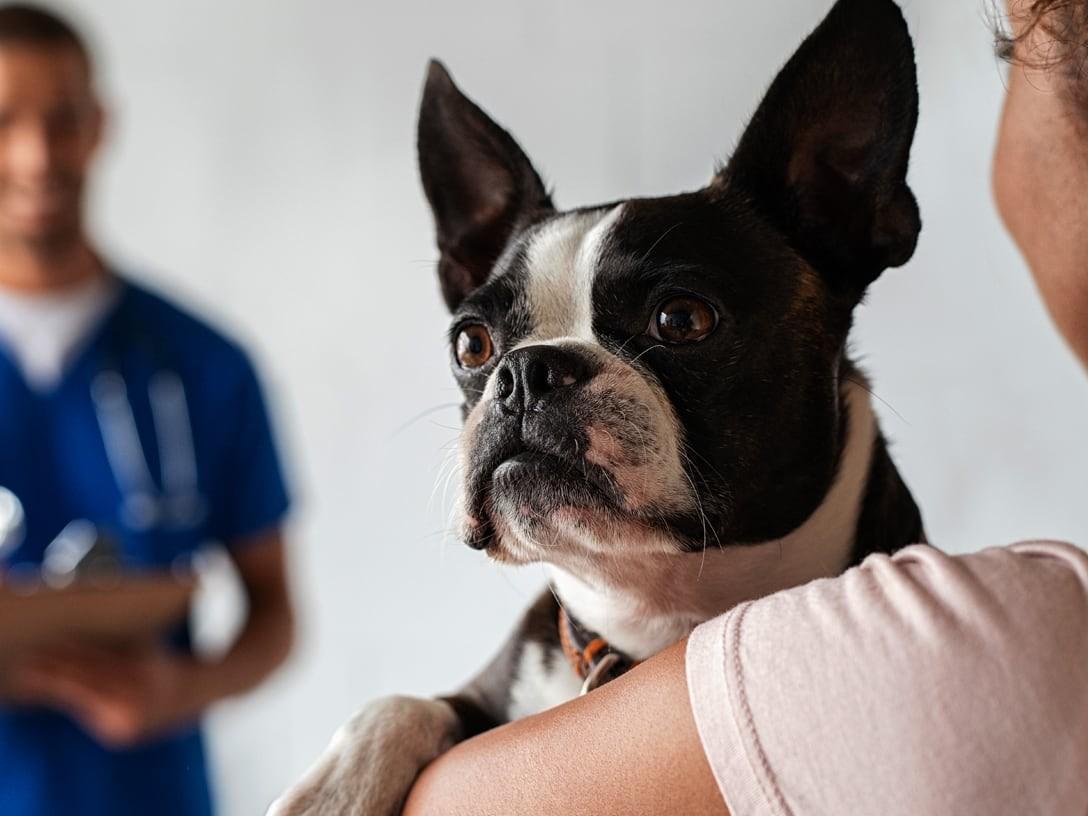Kennel cough, also known as canine infectious respiratory disease complex (CIRDC), is a highly contagious respiratory infection that affects dogs of all breeds and ages. It's characterized by a harsh, persistent cough that often sounds like a goose honk. While it can be concerning for dog owners, kennel cough is typically mild and resolves within a few weeks with proper care. The majority of reported cases exhibit mild clinical signs8. However, in some cases, it can lead to more serious complications, especially in puppies, senior dogs, or those with weakened immune systems.
Causes of Kennel Cough
Kennel cough is caused by a variety of viral and bacterial agents, with a common culprit being the bacterium Bordetella bronchiseptica. Other contributing pathogens include canine parainfluenza virus, canine adenovirus type 2, and canine influenza virus. These pathogens are often found in environments where dogs congregate, such as kennels, dog parks, grooming facilities, and animal shelters. In many reported cases, the affected animals have spent time being housed in groups or close quarters with other dogs, e.g., kennels, breeding establishments, hunts, boarding facilities, shows, etc9.
Kennel Cough Symptoms to Watch For
The hallmark symptom of kennel cough is a dry, hacking cough, often accompanied by gagging or retching. The disease is most diagnosed in young dogs (8-9 weeks old) as a persistent, recurrent cough4.
Other signs may include:
Runny nose
Sneezing
Watery eyes
Lethargy
Low-grade fever
If your dog exhibits any of these symptoms, it's essential to isolate them from other dogs and consult your veterinarian for an accurate diagnosis and appropriate treatment plan.
Diagnosis and Treatment of Kennel Cough in Dogs
Diagnosing kennel cough typically involves a physical examination and a review of your dog's medical history, including any recent exposure to other dogs. Sometimes, your veterinarian may recommend diagnostic tests, such as a tracheal wash or PCR testing, to identify the specific pathogens involved.
Treatment for kennel cough focuses on alleviating symptoms and preventing secondary infections. Most dogs recover with supportive care, including rest, hydration, and cough suppressants. Antibiotics may be prescribed if a bacterial infection is present or suspected.
Prevention Strategies
Vaccination is the cornerstone of kennel cough prevention. However, it's important to remember that no vaccine is 100% effective4. Core canine vaccines offer protection against some of the viruses associated with kennel cough, while additional vaccines are available for Bordetella bronchiseptica and canine influenza virus. Your veterinarian can recommend the appropriate vaccination protocol for your dog based on their lifestyle and risk factors.
Other preventive measures include:
Avoid high-risk environments, such as crowded kennels or dog parks, especially during outbreaks.
Maintaining good hygiene practices, such as washing your hands after handling dogs and regularly cleaning food and water bowls.
Keep your dog's immune system strong through a balanced diet, regular exercise, and stress reduction.
Frequently Asked Questions
Is kennel cough contagious to humans?
While rare, humans can contract kennel cough from dogs, particularly those with weakened immune systems. However, even in these cases, symptoms are usually mild. CIRDC is primarily a canine disease, and it is believed that the various pathogens involved generally do not pose a significant risk to human health.
Will kennel cough go away on its own?
In many cases, kennel cough resolves without treatment, much like the common cold in humans. However, medications can help manage symptoms, speed up recovery, and prevent complications. It's always best to consult your veterinarian for guidance.
How is kennel cough treated?
Treatment of kennel cough focuses on supportive care, such as rest, nutrition/fluid management, and cough suppression to manage symptoms and promote recovery. Because this illness often has a strong viral component, treatment may not involve antibiotics, especially if a bacterial infection has not been confirmed. Patients with bacterial pneumonia are the most likely to require antibiotics, with the specific antibiotic chosen based on culture results to ensure effectiveness. Infection control measures are also critical to help prevent the spread of the illness within households and communities.
By understanding the causes, symptoms, and treatment options for kennel cough, you can take proactive steps to protect your canine companion and ensure their respiratory health. Remember, early intervention and preventive measures are key to minimizing the impact of this common canine ailment.

With 10 years of experience as a pet parent, I aim to empower pet owners with insights into pet insurance and maintaining their pet's well-being. I aspire to be a trusted source, combining knowledge with a commitment to the welfare of our beloved pets.

Dr. Jennifer Sperry, a licensed vet and Medical Director at Independence Pet Group, is dedicated to educating pet parents about the importance of pet health and financial preparedness, bringing pet health information to a broad audience. You can learn more about Dr. Sperry on her LinkedIn.
Can Humans Get Kennel Cough? (2022). In Bon Secours Blog.
https://blog.bonsecours.com/healthy/can-humans-get-kennel-cough/
Canine infectious respiratory disease complex (Kennel cough). (n.d.). In American Veterinary Medical Association. Retrieved October 9, 2024, from
Kennel Cough - Kennel Cough. (n.d.). In Merck Veterinary Manual. Retrieved October 9, 2024, from
https://www.merckvetmanual.com/respiratory-system/respiratory-diseases-of-small-animals/kennel-cough
Kennel cough. (n.d.). In miloa.eu. Retrieved October 9, 2024, from
Kennel Cough Causes, Symptoms & Treatment. (n.d.). In Trudell Animal Health. Retrieved October 9, 2024, from
https://www.trudellanimalhealth.com/learn/further-reading/kennel-cough-causes-symptoms-treatment
Kennel Cough in Dogs: Symptoms, Treatments, Vaccine. (n.d.). In Best Friends Animal Society - Save Them All. Retrieved October 9, 2024, from
https://bestfriends.org/pet-care-resources/kennel-cough-dogs-symptoms-treatments-vaccine
The risks of kennel cough. (n.d.). In Cornell University College of Veterinary Medicine. Retrieved October 9, 2024, from
Reagan KL, Sykes JE. Canine Infectious Respiratory Disease. Vet Clin North Am Small Anim Pract. 2020 Mar;50(2):405-418. doi: 10.1016/j.cvsm.2019.10.009. Epub 2019 Dec 5. PMID: 31813556; PMCID: PMC7132485.
Lenz, O. (2023). Canine respiratory disease outbreak involving canine pneumovirus at an american animal shelter. Veterinary Record Case Reports, 11(4). https://doi.org/10.1002/vrc2.707












